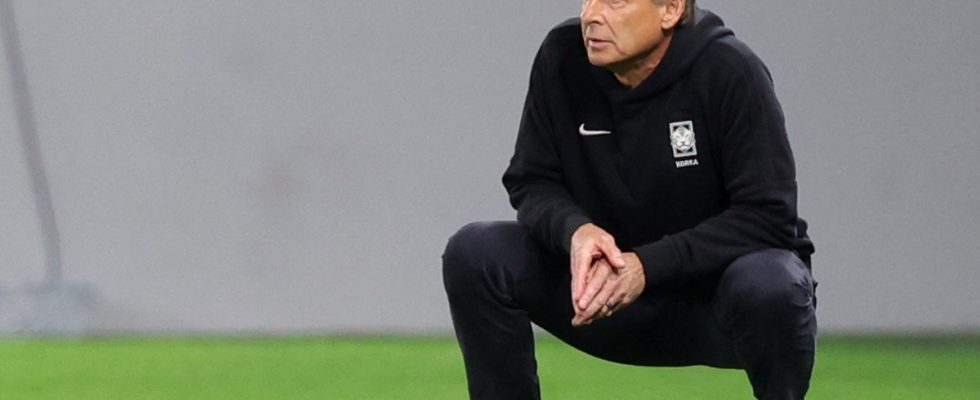“Keep on fighting,” writes Jürgen Klinsmann in his farewell message, and based on this little message alone – keep fighting! – a noticeable difference can be seen between South Korea and the past. “HaHoHe your Jürgen,” were the now almost legendary farewell words to the supporters of Hertha BSC Berlin, where Klinsmann announced his resignation in February 2020 after just eleven weeks because he had gotten to know a club that he no longer wanted to coach .
This time, however, the “keep on fighting” can also be interpreted reflexively; it could just as easily refer to Klinsmann himself, who would actually have liked to continue fighting in South Korea until the 2026 World Cup in his adopted home of the USA. But the South Koreans are looking for a general other than him, as can be seen from the discharge papers.
Klinsmann doesn’t leave a particularly bad record after eleven and a half months as national coach. Nine wins, five draws and three defeats from 17 games, a semi-final at the Asian Cup, a confident start to the Asian World Cup qualification – it wasn’t the raw data that became a problem for Klinsmann. But rather the sideshows.
A generational conflict was raging in the divided team
There was the smile scandalized by the media after the disappointing elimination against Jordan, which was interpreted as a lack of seriousness. There is the lack of tactical development, which recently resulted in a fatally low number of goals. It sounds like a Klinsmann best-of, like the story of a trainer who is valued everywhere in the industry for his wealth of ideas, but who has not mastered the implementation.
In the case of South Korea, the whole truth also includes the question of which coach could have coached this team more successfully. A quarrel between the now 31-year-old leading player Heung-min Son and the young PSG talent Kang-in Lee, in which Son dislocated a finger joint, recently became public and revealed a massive generational conflict that was rife in the The team is raging, and they obviously didn’t want to get together on the field.
Klinsmann has also recently realized that there are cultural differences that make solving such an issue difficult and that he underestimated before taking office, according to those around him. However, he did not want to give up the coaching position voluntarily, but that does not change the fact that the 59-year-old finds himself in a not very promising position in his career, as a failed coach of a medium-sized football nation. The only thing that helps is to keep fighting.

